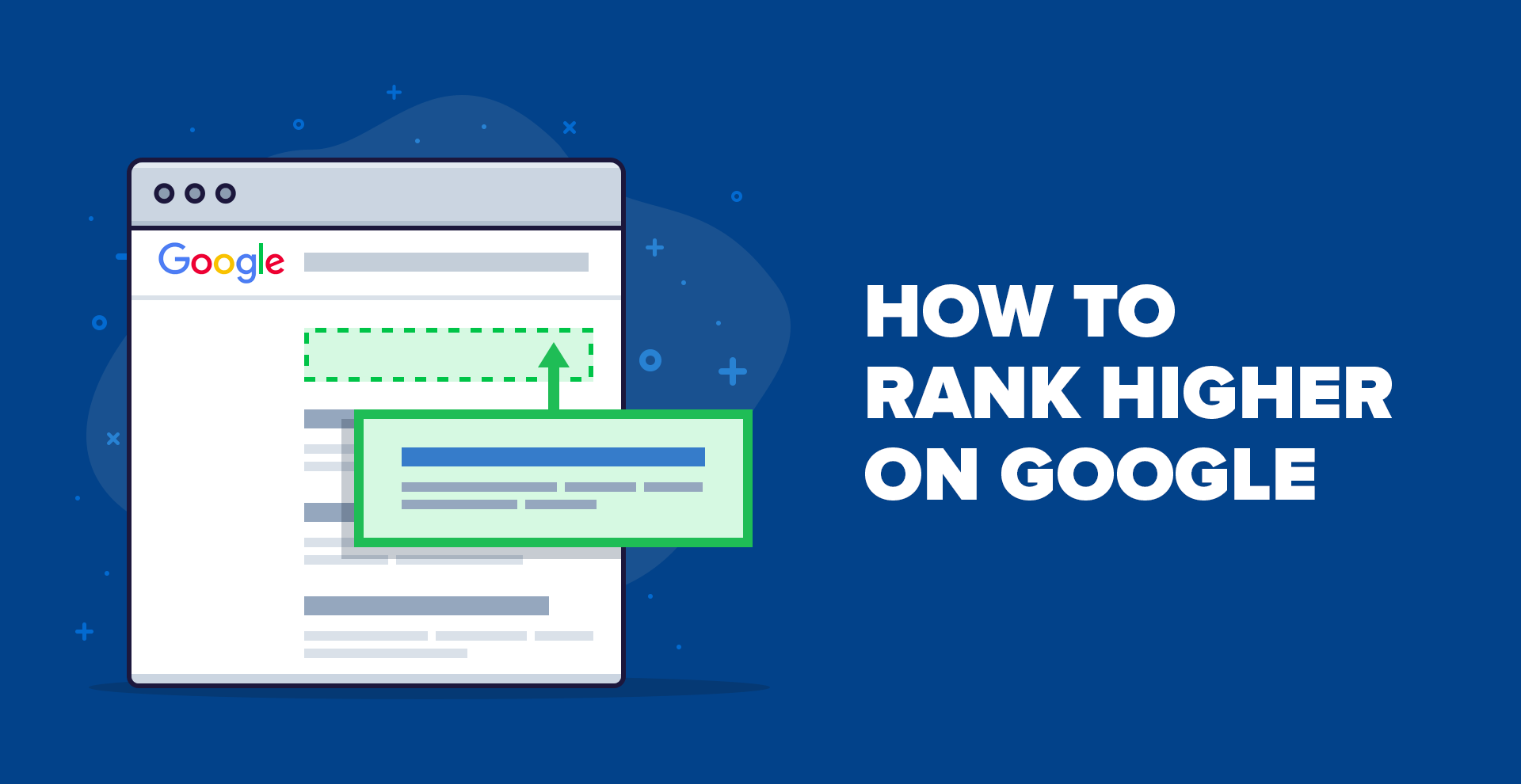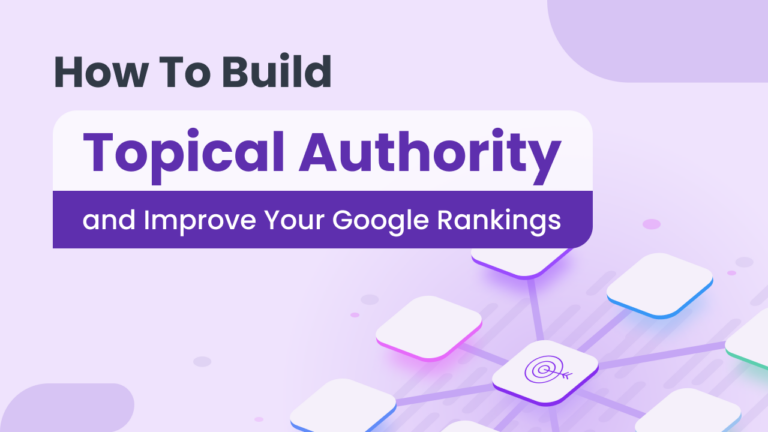The article titled “SEO KPIs: The 10 Most Important Metrics to Track” highlights the importance of measuring key performance indicators (KPIs) in search engine optimization (SEO) to evaluate the success of a website’s SEO strategy. The article lists ten essential SEO KPIs that website owners and marketers should track to measure their SEO performance, including organic traffic, keyword rankings, backlinks, click-through rates (CTR), bounce rates, time on page, pages per session, conversion rate, return on investment (ROI), and domain authority. The article provides a detailed explanation of each KPI and offers tips on how to track and improve them to optimize a website’s SEO performance. The article also emphasizes the importance of setting realistic goals, regularly monitoring KPIs, and using data-driven insights to adjust SEO strategies to achieve better results.
Search Visibility
Search visibility refers to the extent to which a website or a webpage appears in search engine results pages (SERPs) for specific keywords or search queries. In other words, search visibility measures how easily a website or a webpage can be found by users searching for relevant information or products online.
Search visibility is an essential aspect of digital marketing and is crucial for businesses that rely on online traffic and conversions. High search visibility helps websites attract more organic traffic, increase brand awareness, and generate more leads and sales.
There are several factors that affect search visibility, including keyword research, on-page optimization, backlinks, and technical SEO. Keyword research is the process of identifying relevant keywords and phrases that people use to search for specific products or information online. By incorporating these keywords into website content, meta descriptions, and page titles, businesses can improve their search visibility for these terms.
On-page optimization involves optimizing the content of web pages to make it more relevant and valuable for users and search engines. This includes creating high-quality content, optimizing page titles, meta descriptions, and header tags, and using appropriate internal linking.
Backlinks are another important factor in search visibility. Backlinks are links from other websites that point to a website or a webpage. High-quality backlinks from authoritative websites can improve search visibility and increase domain authority.
Technical SEO involves optimizing the technical aspects of a website, including page speed, mobile-friendliness, and site architecture. These technical factors can impact search visibility and user experience, and therefore should be optimized to improve website rankings and search visibility.
To improve search visibility, businesses should focus on creating high-quality content that meets user needs and provides value. They should also conduct thorough keyword research to identify relevant keywords and optimize their website accordingly. Building high-quality backlinks from authoritative websites can also improve search visibility and domain authority. Finally, businesses should ensure their website is technically optimized for search engines and user experience.
In conclusion, search visibility is a critical aspect of digital marketing and is essential for businesses to attract more organic traffic and generate more leads and sales. By focusing on keyword research, on-page optimization, backlinks, and technical SEO, businesses can improve their search visibility and achieve better online visibility and success.
Conversions from organic traffic
Conversions from organic traffic refer to the number of website visitors who take a desired action, such as making a purchase, filling out a form, or signing up for a newsletter, after arriving on a website via organic search results. Organic search refers to the search results that appear on a search engine results page (SERP) based on relevance to the search term, as opposed to paid advertising.
Conversions from organic traffic are important because they represent the end goal of most website owners and businesses. Organic traffic is highly valuable as it represents visitors who are actively seeking out a particular product, service, or information. Converting this traffic into customers or leads is the ultimate goal of most websites.
There are several ways to improve conversions from organic traffic, including:
Targeting the right keywords: Conducting keyword research to identify relevant keywords and phrases that attract highly targeted traffic can help increase conversions.
Optimizing landing pages: Ensuring that landing pages are optimized for the targeted keywords and provide valuable and relevant information can help increase conversion rates.
Providing clear calls-to-action: Including clear and prominent calls-to-action on landing pages can encourage visitors to take the desired action.
Enhancing user experience: Improving website usability, page speed, and mobile-friendliness can improve user experience and encourage visitors to take the desired action.
Testing and optimizing: Testing different landing pages, calls-to-action, and messaging can help identify what works best and optimize for better conversions.
By improving conversions from organic traffic, businesses can increase their return on investment (ROI) from their SEO efforts, drive more revenue, and grow their customer base. It is essential to continuously monitor and improve conversions from organic traffic to ensure that the website is meeting its goals and providing the best possible user experience.
SEO ROI
SEO ROI (Return on Investment) refers to the measure of the profitability of an SEO campaign in relation to the investment made in terms of time, effort, and money. It is a way to determine whether the resources put into SEO efforts are generating a positive return.
Calculating SEO ROI involves comparing the costs of implementing an SEO campaign to the revenue generated by the campaign. To calculate SEO ROI, businesses can use the following formula:
ROI = (Revenue generated – Cost of SEO campaign) / Cost of SEO campaign x 100
For example, if a business invests $10,000 in an SEO campaign and generates $50,000 in revenue, the ROI would be calculated as follows:
ROI = ($50,000 – $10,000) / $10,000 x 100 = 400%
An ROI of 400% means that for every dollar invested in the SEO campaign, the business earned $4 in revenue.
Improving SEO ROI involves optimizing the SEO campaign to generate better results while minimizing costs. Some strategies for improving SEO ROI include:
Setting realistic goals: Having specific, measurable, and achievable goals helps businesses track progress and adjust their SEO strategy as needed.
Conducting thorough keyword research: Identifying the right keywords to target can help businesses attract highly targeted traffic and improve conversion rates.
Optimizing for user experience: Ensuring that the website is easy to navigate, loads quickly, and provides valuable content can improve user experience and encourage conversions.
Tracking and analyzing data: Continuously monitoring and analyzing website traffic, conversions, and other metrics can help businesses identify what works and what doesn’t and make data-driven decisions to improve SEO ROI.
Keeping up with algorithm changes: Staying up to date with search engine algorithm changes and adapting SEO strategies accordingly can help businesses maintain or improve their search rankings and generate more organic traffic.
In conclusion, calculating and improving SEO ROI is crucial for businesses to determine whether their SEO efforts are generating a positive return and to optimize their strategy accordingly. By setting realistic goals, conducting thorough keyword research, optimizing for user experience, tracking and analyzing data, and staying up to date with algorithm changes, businesses can improve their SEO ROI and achieve better online visibility and success.
New Backlinks
Backlinks are an important factor in SEO (Search Engine Optimization) as they signal to search engines that other websites consider your content to be valuable and relevant. When a website links to your website, it is called a backlink. The more high-quality backlinks you have, the better chance your website has to rank higher in search engine results pages (SERPs). Therefore, acquiring new backlinks is an essential part of any SEO strategy.
Here are some tips to acquire new backlinks:
Create high-quality content: Creating high-quality and unique content that provides value to readers is the most effective way to attract new backlinks. People are more likely to link to content that they find interesting and informative.
Guest posting: Writing guest posts for other websites in your niche can help you reach new audiences and gain new backlinks. When you write a guest post, you can include a link to your website in your author bio or within the content.
Broken link building: Broken link building involves finding broken links on other websites and reaching out to the website owner to suggest a replacement link, which can be a link to your own website.
Outreach: Reaching out to other website owners or bloggers in your niche and requesting a link can be an effective way to acquire new backlinks. However, it is important to make sure that the website is relevant to your niche and that the content you are linking to is relevant and valuable to their audience.
Social media: Sharing your content on social media platforms can help you attract new backlinks. When people find your content useful or interesting, they may link to it on their own website or blog.
Directories: Submitting your website to online directories can also help you acquire new backlinks. However, it is important to only submit your website to reputable directories and avoid spammy or low-quality directories.
In conclusion, acquiring new backlinks is an important part of any SEO strategy. By creating high-quality content, guest posting, broken link building, outreach, social media, and submitting to directories, you can attract new backlinks and improve your website’s authority and search engine rankings. However, it’s important to remember that building high-quality backlinks takes time and effort, and it’s crucial to focus on quality over quantity to avoid any negative impact on your website’s SEO.
Keyword Rankings
Keyword ranking refers to the position of a webpage in the search engine results pages (SERPs) for a particular keyword or phrase. Achieving a high keyword ranking is important for businesses because it increases visibility, drives traffic, and ultimately leads to more conversions.
Here are some tips to improve keyword rankings:
Conduct keyword research: Keyword research is the foundation of any successful SEO strategy. It involves identifying the keywords and phrases that your target audience is using to search for your products or services. You can use various keyword research tools like Google Keyword Planner, Ahrefs, SEMrush, and others to identify relevant keywords.
Optimize on-page elements: Optimizing on-page elements such as title tags, meta descriptions, header tags, and content can help search engines understand what your webpage is about and improve your keyword rankings. Make sure to include your target keyword in these elements in a natural and relevant way.
Create high-quality content: Creating high-quality, informative, and engaging content that satisfies the searcher’s intent can improve your keyword rankings. Search engines like Google favor pages that provide the best user experience to their users.
Build high-quality backlinks: High-quality backlinks from authoritative and relevant websites can improve your webpage’s authority and signal to search engines that your content is valuable and trustworthy. You can acquire new backlinks through tactics such as guest blogging, broken link building, and outreach.
Monitor keyword rankings: Regularly monitor your keyword rankings to track your progress and identify any areas for improvement. You can use various tools like Ahrefs, SEMrush, and Google Search Console to track keyword rankings.
Stay up to date with algorithm updates: Search engine algorithms are constantly changing, and it’s important to stay up to date with these updates to ensure that your SEO strategy remains effective. Stay informed of any algorithm changes and adapt your strategy accordingly.
In conclusion, improving keyword rankings is a crucial aspect of any successful SEO strategy. By conducting keyword research, optimizing on-page elements, creating high-quality content, building high-quality backlinks, monitoring keyword rankings, and staying up to date with algorithm updates, you can improve your webpage’s visibility, drive more traffic, and increase conversions. However, it’s important to remember that SEO is a long-term strategy that requires patience, persistence, and continuous effort.
Organic Traffic
Organic traffic refers to the visitors who come to your website through unpaid search engine results. When someone types a keyword or phrase into a search engine like Google, the search engine returns a list of relevant results. If your website appears in this list and someone clicks on the link to your website, that counts as organic traffic.
Organic traffic is important for businesses because it’s an indication of how well your website is performing in search engine rankings. Here are some tips to increase organic traffic:
Conduct keyword research: Keyword research is crucial for identifying the keywords and phrases that your target audience is using to find your products or services. Use keyword research tools like Google Keyword Planner, Ahrefs, SEMrush, and others to identify relevant keywords.
Optimize on-page elements: On-page optimization involves optimizing the elements on your website such as title tags, meta descriptions, header tags, and content. Make sure to include your target keywords in these elements in a natural and relevant way.
Create high-quality content: Creating high-quality, informative, and engaging content that satisfies the searcher’s intent is crucial for attracting and retaining organic traffic. Make sure your content is relevant to your target audience and provides value.
Build high-quality backlinks: High-quality backlinks from authoritative and relevant websites can improve your website’s authority and signal to search engines that your content is valuable and trustworthy. You can acquire new backlinks through tactics such as guest blogging, broken link building, and outreach.
Improve website speed: Website speed is an important factor in search engine rankings and user experience. A slow-loading website can lead to a higher bounce rate, which can negatively impact your search engine rankings. Use tools like Google PageSpeed Insights to identify areas for improvement.
Utilize social media: Sharing your content on social media platforms can increase your website’s visibility and attract more organic traffic. Make sure to share your content on relevant social media channels where your target audience is active.
In conclusion, increasing organic traffic is an important aspect of any successful SEO strategy. By conducting keyword research, optimizing on-page elements, creating high-quality content, building high-quality backlinks, improving website speed, and utilizing social media, you can attract more organic traffic to your website. However, it’s important to remember that SEO is a long-term strategy that requires patience, persistence, and continuous effort.
Number of indexed pages
The number of indexed pages refers to the number of web pages that search engines have crawled and added to their index. When a search engine crawls your website, it analyzes the content on each page and adds it to its index. The more pages that are indexed, the more opportunities you have to rank for keywords and drive organic traffic to your website.
Here are some tips to increase the number of indexed pages:
Create high-quality content: Creating high-quality and unique content is the best way to increase the number of indexed pages. Make sure that your content is relevant, informative, and provides value to your target audience. Use a mix of different types of content such as blog posts, articles, videos, infographics, and others to keep your website fresh and engaging.
Submit sitemaps: Sitemaps help search engines understand the structure of your website and identify all the pages that need to be indexed. Submitting sitemaps to search engines like Google, Bing, and Yahoo can help increase the number of indexed pages.
Improve website structure: Improving your website structure can make it easier for search engines to crawl and index your web pages. Use a clear and organized navigation structure and include internal links to help search engines find and index all the pages on your website.
Use header tags: Header tags (H1, H2, H3) help search engines understand the structure of your content and can improve the indexation of your web pages. Use header tags to break up your content into sections and include your target keywords where relevant.
Avoid duplicate content: Duplicate content can confuse search engines and lead to lower rankings and fewer indexed pages. Make sure that each page on your website has unique and original content.
Monitor indexation: Regularly monitor the number of indexed pages using tools like Google Search Console and Ahrefs. If you notice a sudden drop in the number of indexed pages, investigate the cause and take corrective action.
In conclusion, increasing the number of indexed pages is important for improving your website’s visibility and attracting more organic traffic. By creating high-quality content, submitting sitemaps, improving website structure, using header tags, avoiding duplicate content, and monitoring indexation, you can increase the number of indexed pages and improve your search engine rankings.
Website Health Score
A website health score is a measure of a website’s overall performance, functionality, and optimization. It provides an assessment of the website’s technical SEO, user experience, and other key factors that impact its ability to attract and retain visitors.
Here are some factors that contribute to a website’s health score:
Technical SEO: Technical SEO refers to the optimization of the website’s technical aspects such as site speed, mobile responsiveness, crawlability, and indexation. A well-optimized website will have a faster loading speed, easy navigation, and a clear hierarchy of content.
On-page SEO: On-page SEO includes optimizing the website’s content, structure, and HTML tags to improve search engine rankings. This includes keyword optimization, internal linking, and meta descriptions.
Backlinks: Backlinks are links from other websites to your site. High-quality and relevant backlinks can improve your website’s authority and credibility, which can help improve search engine rankings and attract more visitors.
User experience: User experience refers to how easy and enjoyable it is for visitors to navigate and use the website. A website with a good user experience will have clear navigation, relevant and engaging content, and easy-to-use forms.
Security: Security is an important aspect of website health. A website with a valid SSL certificate and secure payment gateways can help establish trust with visitors and protect their personal information.
Content: Content is a critical factor in website health. High-quality and engaging content can attract and retain visitors, improve search engine rankings, and establish your website as an authority in your niche.
To improve your website’s health score, you can conduct a website audit using tools like Google Search Console, Ahrefs, SEMrush, or Moz. This will help you identify areas that need improvement and develop an action plan to address any issues.
In conclusion, a website health score is an important measure of your website’s overall performance and optimization. By optimizing technical SEO, improving on-page SEO, building high-quality backlinks, enhancing user experience, improving website security, and creating engaging content, you can improve your website’s health score, attract more visitors, and achieve your business goals.
Domain Rating
Domain Rating (DR) is a proprietary metric developed by Ahrefs, one of the leading SEO tools in the market. It measures the strength and authority of a website’s backlink profile on a logarithmic scale of 0 to 100. The higher the DR score, the more authoritative and trustworthy the website is considered by search engines.
Here are some factors that contribute to a website’s DR score:
Backlinks: Backlinks are a crucial factor in determining a website’s DR. The quality and quantity of backlinks from high-authority websites can significantly impact a website’s DR score.
Linking Root Domains: Linking root domains refer to the number of unique domains that link to a website. Having more linking root domains from high-authority websites can boost a website’s DR.
Referring IPs: Referring IPs are the number of unique IP addresses that link to a website. Having a diverse range of referring IPs can help improve a website’s DR.
Content: High-quality and engaging content can attract backlinks from other websites, which can improve a website’s DR over time.
Traffic: A website’s organic traffic can also contribute to its DR score. The more traffic a website receives, the more authoritative and trustworthy it is considered by search engines.
To improve your website’s DR score, you can focus on building high-quality backlinks from authoritative websites, creating engaging and shareable content, and optimizing your website’s technical SEO. Conducting a backlink audit using tools like Ahrefs can help you identify areas that need improvement and develop a strategy to improve your website’s DR score.
In conclusion, Domain Rating is an important metric for measuring a website’s authority and strength of its backlink profile. By focusing on building high-quality backlinks, creating engaging content, and optimizing your website’s technical SEO, you can improve your website’s DR score and achieve higher search engine rankings.
Click-Through Rate
Click-Through Rate (CTR) is a metric that measures the ratio of clicks to impressions for a particular ad, search result, or webpage. It is a percentage that shows how many people clicked on a link compared to how many people saw it. CTR is an essential metric in digital marketing and SEO because it indicates how effective a particular ad, search result, or webpage is at driving clicks and traffic.
Here are some factors that can affect CTR:
Position on search results: Websites that rank higher on search results pages tend to have higher CTRs because they are more visible and accessible to users.
Ad copy and meta descriptions: Ad copy and meta descriptions can significantly impact CTR. Clear, compelling, and relevant ad copy and meta descriptions can encourage users to click on a link.
Keywords: The use of relevant and targeted keywords in ad copy, meta descriptions, and content can help increase CTR by attracting the attention of users who are searching for those keywords.
User intent: Understanding user intent and creating content that aligns with it can help improve CTR. Websites that provide value and relevance to users tend to have higher CTRs.
To improve CTR, you can optimize your ad copy, meta descriptions, and content to be more compelling and relevant to users. You can also conduct keyword research to identify high-volume and relevant keywords to include in your ad copy and content. Additionally, focusing on providing value and relevance to users can help improve CTR over time.
In conclusion, CTR is an essential metric for measuring the effectiveness of your digital marketing and SEO efforts. By optimizing your ad copy, meta descriptions, and content, and understanding user intent, you can improve CTR, attract more clicks and traffic, and achieve your business goals.
Core Web Vitals
Core Web Vitals are a set of metrics developed by Google to measure the user experience of websites. They are designed to help website owners and developers understand how well their site performs in terms of speed, responsiveness, and visual stability. Google uses Core Web Vitals as a ranking factor in its search algorithm, so optimizing for these metrics can help improve your website’s search engine rankings and user experience.
There are three Core Web Vitals metrics:
Largest Contentful Paint (LCP): This metric measures the loading performance of a webpage. Specifically, it measures the time it takes for the largest content element on a webpage (such as an image or a block of text) to become visible to the user.
First Input Delay (FID): This metric measures the interactivity of a webpage. Specifically, it measures the time it takes for a webpage to respond to the user’s first interaction, such as clicking a button or typing in a form field.
Cumulative Layout Shift (CLS): This metric measures the visual stability of a webpage. Specifically, it measures how much the page layout shifts as the page loads. This can be caused by elements loading or moving at different speeds, which can be frustrating for users.
To optimize for Core Web Vitals, website owners and developers can take a variety of steps, such as:
Optimizing images and other media files to reduce their size and load time.
Minimizing the number of HTTP requests needed to load a page.
Prioritizing above-the-fold content to ensure it loads quickly.
Minimizing third-party code and scripts that can slow down page loading times.
Using a content delivery network (CDN) to deliver content more quickly to users in different geographic locations.
Testing website performance using tools like Google’s PageSpeed Insights or Lighthouse.
By optimizing for Core Web Vitals, website owners and developers can improve the user experience of their websites, which can lead to higher search engine rankings, better engagement, and increased conversions.
Engagement metrics
Engagement metrics are a set of metrics used to measure how users interact with a website or digital content. They provide insight into how users are engaging with a website, how they are responding to its content, and how they are progressing through the conversion funnel. Engagement metrics are essential for understanding the effectiveness of digital marketing campaigns and for identifying areas for improvement.
Here are some common engagement metrics used in digital marketing:
Bounce rate: Bounce rate measures the percentage of users who leave a website after viewing only one page. A high bounce rate can indicate that users are not finding the content they are looking for or that the website is slow or difficult to use.
Time on page: Time on page measures how long users spend on a particular page of a website. This metric can indicate how engaging and relevant the content is to users.
Pages per session: Pages per session measures the average number of pages that a user views during a single session on a website. This metric can indicate how well the website is guiding users through the conversion funnel.
Conversion rate: Conversion rate measures the percentage of users who take a desired action on a website, such as filling out a form or making a purchase. This metric is essential for understanding the effectiveness of digital marketing campaigns and for identifying areas for improvement.
Social media engagement: Social media engagement measures the likes, comments, shares, and other interactions that users have with social media content. This metric can indicate how engaging and relevant the content is to users and can help identify opportunities to improve social media strategy.
By monitoring engagement metrics, website owners and digital marketers can identify areas for improvement and make data-driven decisions to optimize user engagement and improve conversion rates. It’s important to remember that engagement metrics should be viewed in conjunction with other metrics, such as traffic and conversion metrics, to get a complete picture of website performance.









